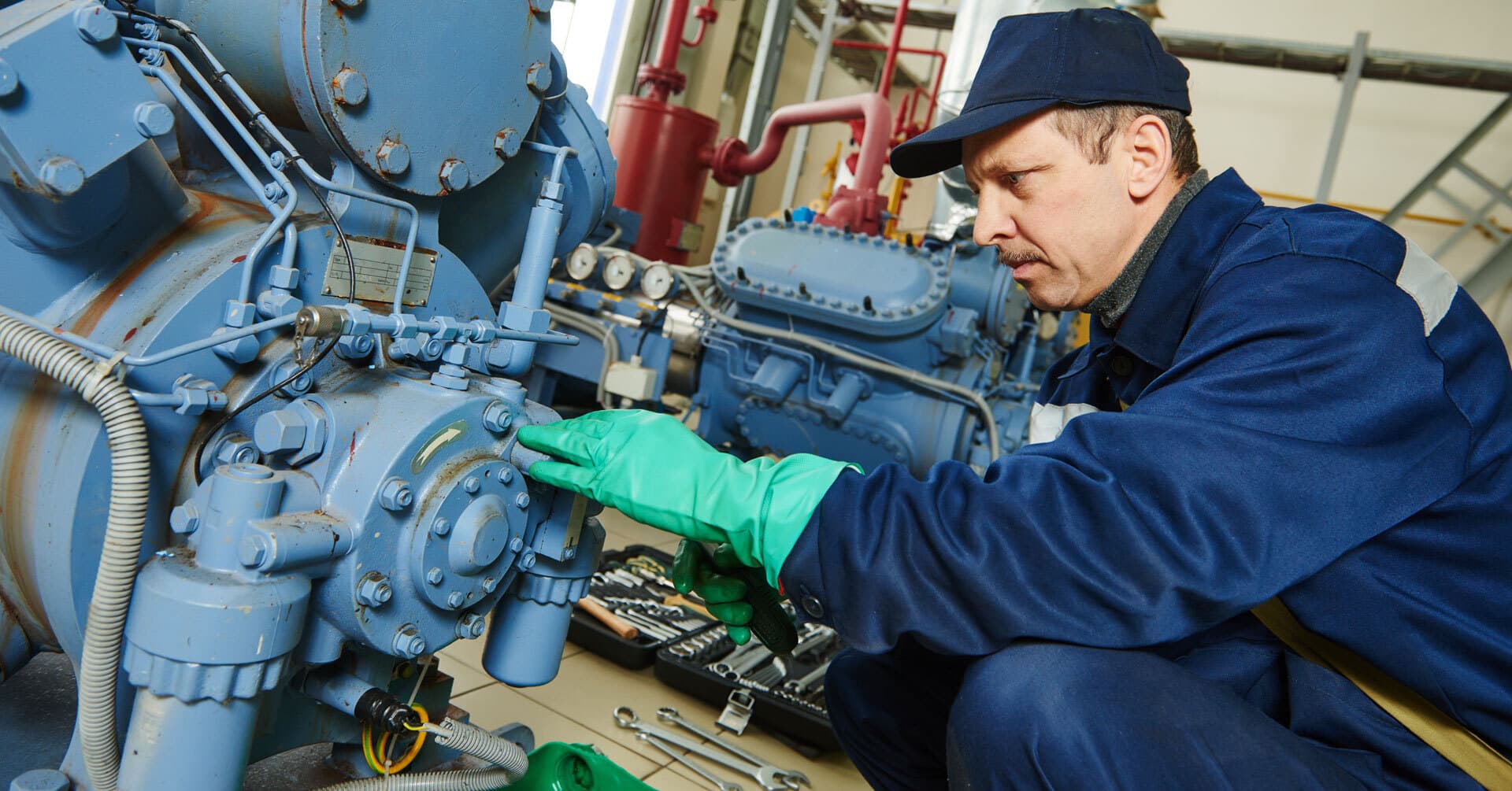
Reliability Consultants
We combine unique asset reliability knowledge along with best practices, advanced tools, and proven methodologies to develop business-focused solutions for clients regardless of where they are in their reliability journey.
Reliability Consulting Services
Explore some of our popular Reliability Consulting solutions below. Don’t see what you’re looking for? Contact us for a more comprehensive overview of our offerings.

Coaching & Mentoring
Our reliability consulting service is designed to successfully internalize and take control of your reliability initiatives. If you want more than a training solution, but still prefer to implement new processes and standards using your own personnel, Allied offers a combination of training and coaching solution. Training classes augmented by a regimen of coaching and mentoring work well when training capabilities exist within the plant and implementation timing is not urgent, costs need to be absorbed over time, and new jobs are welcome. Coaching and mentoring are available for a variety of disciplines, including reliability engineering, planning, and scheduling.

Equipment Maintenance Plan Development
As part of an overall Equipment Maintenance Strategy, the Equipment Maintenance Plan, or EMP, is the document that communicates the engineered maintenance strategy to the organization. EMP development – the process that is used to determine the most effective approach to maintenance through a failure model-driven strategy – involves identifying actions that, when taken, will reduce the probability of failure and that are the most cost-effective. EMPs are built from a combination of failure mode data, criticality rankings, Reliability Centered Maintenance (RCM) analysis, and/or statistical analysis. Allied's strategic approach offers multiple levels of EMP development ranging from a “Balance of Plant” solution to plans for your highest-ranking assets that incorporate Weibull statistics and Monte Carlo Simulation for a fully customized Equipment Maintenance Strategy support solution.

Preventive Maintenance Evaluation & Optimization
Benchmark data and Allied’s experience show that many of the Preventive Maintenance (PM) procedures in an organization’s CMMS have not been optimized. Simply removing any and all non-value-added PMs will not be enough to maximize the full benefits of a PM Evaluation (PME). Allied’s PM Optimization (PMO) solution offers a more cost-effective and less time-consuming solution than the traditional RCM approach by breaking down your PM procedures at a task level and verifying that they prevent the intended failure, helping you achieve the intended reliability improvement gains.

Reliability-Centered Maintenance
An overall reliability strategy must be grounded in a fundamental understanding of how equipment fails. Allied's reliability-centered maintenance (RCM) process is the hub of Allied's integrated approach to designing and implementing failure mode-driven reliability strategies that return results in a fraction of the time of traditional RCM methods. This facilitated process includes Failure Modes, Effects, and Criticality Analysis (FMECA); Process Verification Techniques; Consequence Reduction Tasks; Spare Parts Strategy; and Implementation Strategy.

Environmental, Social, and Governance (ESG)
The identification of asset management (AM) competencies necessary to achieve specific ESG goals is not difficult; however, assessing the present state, designing roadmaps, and deploying these competencies can be challenging for many organizations. Nevertheless, doing due diligence (of both the ESG plan and its compliance) is of strategic importance; and can contribute to operational effectiveness, reliability, and more profitable operations.

Reliability-Centered Lubrication
Many facilities are losing nearly 10% of their maintenance budget due to a poor oil analysis program and poor lubrication practices that fail to add value. While a solid Reliability-Centered Lubrication (RCL) program will not stop all failures, when RCL is well designed and implemented, at least 50% or more of those lost dollars can be realized in cost avoidance. Reliability Centered Lubrication (RCL) is a logical way of identifying the critical equipment for implementing condition monitoring and preventive maintenance. Allied’s RCL delivery model can be tailored to meet your specific needs and requirements, beginning with an in-depth review of your current lubrication program to develop an implementation plan to help you achieve your overall goals.

Root Cause Analysis
No organization is immune from equipment failures, operations breakdowns, or human errors. What sets a successful company apart from the rest is its ability to solve problems in a way that prevents recurrence by addressing the root cause of the failure. Root cause analysis (RCA) is the core skill used by maintenance and reliability engineering professionals to resolve problems that impact an organization's ability to meet strategic objectives. RCA is not just a tool, it is a systematic methodology used to eliminate chronic issues that affect an organization. Eliminating the root cause of problems through effective RCA prevents problem recurrence, achieves more substantial results for ALL key performance indicators, and ultimately, gives you a competitive advantage in the marketplace.

Work Execution Management
Work Execution Management (WEM) facilitates all aspects of day-to-day maintenance management activities, including job planning, scheduling, allocation, issuing, execution, and task follow-up. With effective maintenance planning and scheduling practices, your organization can efficiently utilize labor; manage parts, tools, and drawings; reduce time spent waiting for jobs to be assigned; and streamline complex down-days and shutdowns. A clear and concise WEM process driven by a Planning & Scheduling Work Team (PSWT) will result in higher asset availability, lower operating costs, and improved wrench time.

Predictive Maintenance
Allied Reliability has a methodology for the technical approach, technical delivery, and project management of Predictive Maintenance (PdM) programs. Our current process has been proven to ensure consistent, high-quality Condition-Based Monitoring (CBM) services while identifying opportunities for continuous improvement.

Energy Management
This will come as no surprise… Energy costs are rising and becoming a larger percentage of costs for industrial plants and facilities alike. Plant and facilities managers are looking for savings, but are wary of full-scale, costly energy savings programs. However, most are interested in low or no-cost opportunities if prioritized and executed in a way that funds future activities. Allied Reliability refers to this as the “paying it forward” approach.

Equipment Health Assurance
Equipment health is a metric that quantifies the overall state of a piece of equipment relative to the presence of an identifiable defect. This metric can be applied to specific pieces of equipment, process systems, plant areas, or the overall health of an entire plant or facility. To know and manage equipment health, key foundational elements are needed, including a complete asset catalog with asset criticality rankings and equipment maintenance plans that address the findings of a failure modes analysis. Understanding asset health and managing risk across all of your assets is core to not only understanding your current performance and cost structure but also being able to project future performance and cost.

Operator Care
Employee engagement is the holy grail of any organization. Operators need to have ownership of the assets that they operate. They need solutions to make this ownership less subjective and more quantitative and systematic.
Adding an Operator Care program to equipment maintenance strategies allows an organization to engage a largely untapped resource in a meaningful way to support the asset reliability efforts of the organization. In addition to the tangible deliverables of the process (inspection forms, problem tags, audits, etc.), Allied has found that our approach provides an additional benefit by immediately empowering the operators in an area, focusing their attention on measurable results and simple problem-solving techniques. Operators take increased ownership for equipment with a solid structure around existing informal activities while improving and formalizing lines of communication, increasing the visibility of abnormalities, as well as results, and reducing equipment delays and product quality issues.
